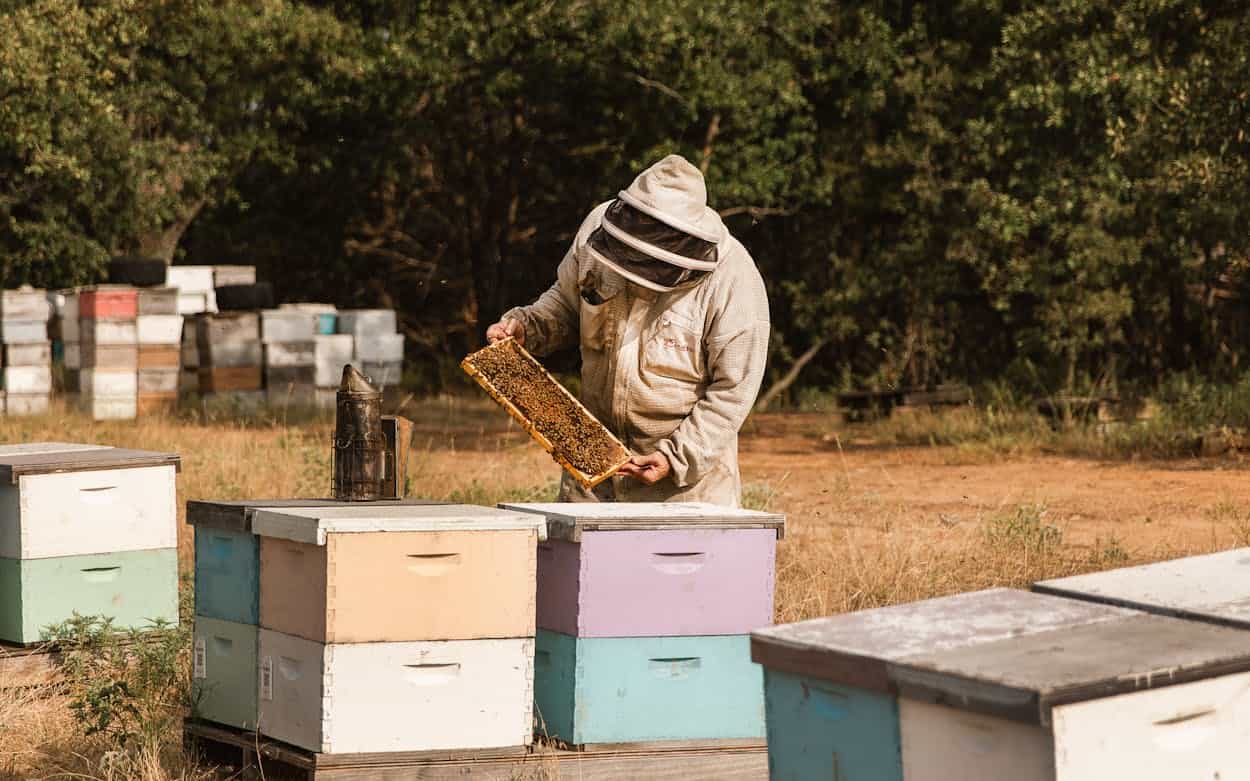READY TO GET STARTED?
REQUEST A FREE ESTIMATE
Fill out the form below or call (888) 466-7849 for a free, no-obligation estimate.

If you’ve discovered a buzzing colony of honeybees on your property, you might be wondering what to do. Don’t worry—there’s a way to handle this situation that protects both your home and these important little pollinators! Honeybee relocation is a great solution, and local beekeepers are key to making it happen.
Honeybees are vital for pollinating plants, which helps flowers bloom and fruits and vegetables grow. But sometimes, they end up in places that aren’t ideal for homeowners. This is where beekeepers step in to relocate the colony, giving the bees a better location while ensuring your property is free of concerns.
Here’s why local beekeepers play such an important role in this process and how it benefits homeowners like you.
Honeybees play a huge role in our environment. They pollinate about one-third of the crops we eat, including fruits, vegetables, nuts, and more. Without them, plants wouldn’t grow as well or produce as much food.
However, as urban areas expand and natural spaces shrink, honeybees sometimes end up building their hives in places like walls, attics, or trees near homes. Relocation protects their colonies and ensures they can continue their important work elsewhere, away from high-traffic areas or living spaces.
Beekeepers are experts in handling honeybee colonies. Their knowledge and care make relocation possible while keeping the bees healthy and productive. Here’s how they help:
When honeybee colonies need to be relocated, local beekeepers and pest control professionals often team up. Here’s what the process looks like:
Choosing honeybee relocation not only solves the immediate problem of a hive on your property but also helps the environment in several ways. Here’s how you benefit:
Honeybees are facing growing challenges like habitat loss and pesticide use . The work of local beekeepers in relocating hives is crucial for supporting bee populations. Without honeybees, we risk losing countless plants that depend on them, from garden flowers to crops that feed our families.
By choosing relocation over extermination, homeowners can make a big difference. It’s a simple decision that protects the bees, your property, and the environment.
Next time a hive appears near your home, remember that local beekeepers are here to help. They’re not just moving bees—they’re protecting pollination, promoting agriculture, and contributing to a thriving planet. Together, we can all do our part to support these incredible pollinators and keep our communities blooming. If you find a hive on your property, reach out to honeybee experts to responsively relocate the bees and protect your space, all while supporting a healthier environment.
Categories